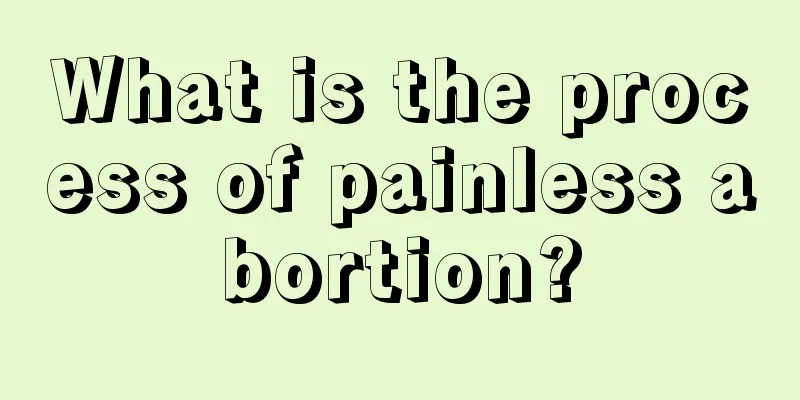What causes hypertension during pregnancy?

|
Once blood pressure is equal to or greater than 140/90 mmHg, it meets the criteria for hypertension. Many people suffer from high blood pressure. Women, especially those who are pregnant, are more likely to suffer from this pregnancy disease. Pregnancy-induced hypertension has a great impact on expectant mothers and their fetuses. It not only harms the heart and retina of pregnant women, but may also cause liver bleeding. If the patient does not receive timely treatment, he or she is more likely to suffer from serious consequences such as convulsions, heart and kidney failure. 1. What is pregnancy induced hypertension? Pregnancy-induced hypertension (PIH) is a common disease during pregnancy, mainly occurring from the 20th week of pregnancy to two weeks after delivery, and the incidence rate accounts for about 5% of the total number of pregnant women. Some patients may experience symptoms such as proteinuria or edema. If the condition is more serious, they may also experience headaches, blurred vision, abdominal pain, etc. How is pregnancy-induced hypertension caused? 1. Theory of genetic susceptibility. Based on clinical epidemiological survey. 2. Theory of immune maladaptation. Preeclampsia is thought to be the result of an abnormal response of the maternal immune system to antigens of paternal origin in the trophoblast. 3. Placental ischemia theory. 4. Oxidative stress theory. They interact with each other. 3. The hazards of pregnancy-induced hypertension 1. Affect brain function and cause coma. This disease can easily cause ischemia and edema in the brain, causing expectant mothers to experience vomiting, convulsions, dizziness and other discomfort symptoms. In severe cases, it can cause brain hemorrhage and lead to coma. 2. Renal ischemia. Gestational hypertension can also affect kidney function, resulting in low urine volume, proteinuria and even renal failure. 3. Harmful to heart health. It can also endanger the health of the heart, leading to insufficient blood supply to the coronary arteries, and then causing myocardial ischemia, edema, and even necrosis in severe cases. The burden on the heart will increase due to peripheral artery spasm, and even left-side heart failure may occur. 4. Liver bleeding. When this disease is severe, it can cause bleeding on the surface of the liver and even cause the liver to rupture. 5. Endanger the retina. If not treated promptly, the small arteries will experience ischemia, spasm, edema and other symptoms, causing damage to the retina, dizziness, blurred vision, and in severe cases, temporary blindness. 6. Causes uteroplacental blood perfusion. Pregnancy-induced hypertension can lead to spasms in blood vessels, which can reduce blood perfusion in the placenta. This will limit the function of the placenta and put the growing baby in the womb under pressure. If the blood vessels in the placental bed of a pregnant woman rupture, it may also lead to symptoms such as placental abruption and heavy bleeding, endangering the health of mother and child. |
<<: Why do I have stretch marks on my legs?
>>: Pregnancy line for a daughter
Recommend
The pain of cesarean section will go away in a few days
The pain of cesarean section is a nightmare that ...
Ovarian ectopic pregnancy surgery
The uterus and ovaries are very important for wom...
How many weeks is the entire pregnancy?
Pregnancy is a big happy event for many young cou...
What are the reasons why women have miscarriages? Five reasons to be vigilant
For women, what they need to pay more attention t...
Is there blood clots and rotten flesh during menstruation?
Irregular menstruation will cause blood clots to ...
What are the methods of intimate massage?
In life, more and more women pay attention to the...
Follicle size and endometrial thickness
Sexual enlightenment education should not be avoi...
What causes dark menstrual color?
Every female will gradually have her menstruation...
Contraindications for use during pregnancy
During pregnancy, expectant mothers are most worr...
Drinking carbonated beverages frequently can disrupt the sleep of teenagers! Lancet sub-published a study in 64 countries
On December 21, a study covering 64 countries pub...
How to determine menopause
Menstruation is a sign that proves that women are...
The consequences of removing the uterus and ovaries are very serious.
The uterus and ovaries are very important to wome...
What should women eat to replenish qi and blood
Women should eat correctly. Many women are more c...
Why does my child keep blinking?
Are parents too busy at work and have little inte...
The reason why women suddenly lose a lot of hair
Important reminder: Hair is very important for ma...









